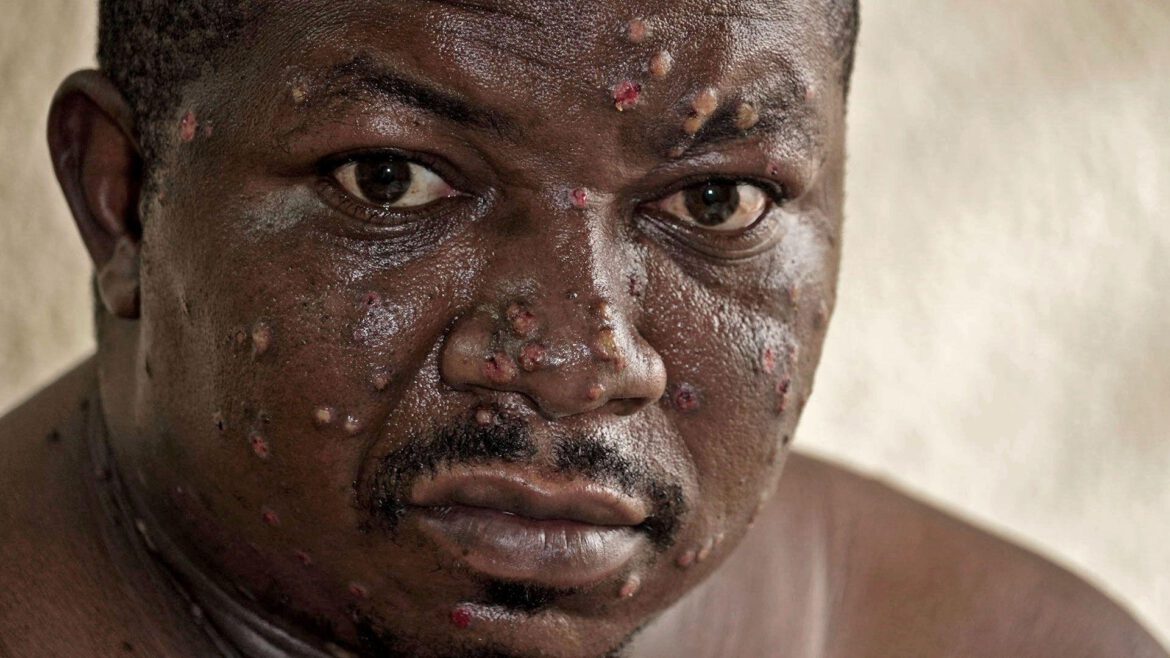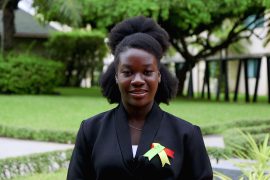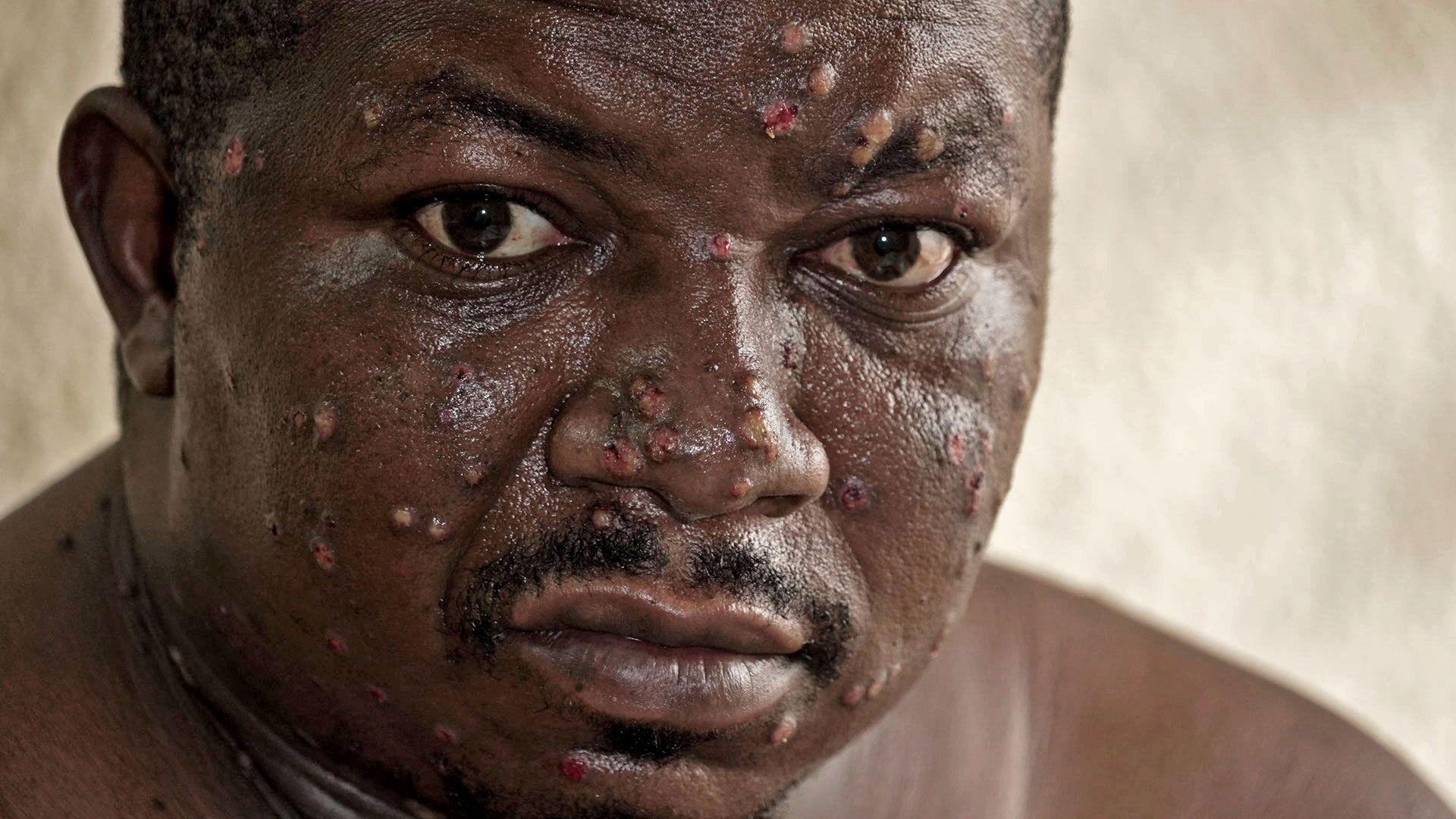
Egide Irambona, 40, siddon bare-chested on im hospital bed, next to di window, for one treatment room wey e dey share wit two oda men.
Di rays of di evening sun dey shine above Burundi main city, Bujumbura, filter in. Im face, cover wit soft light, full of blisters. Im chest too, and im arms.
“I bin get swollen lymph nodes for my throat. E bin dey so painful I no fit sleep. Den di pain go down dia and den e move to my legs,” e tell BBC.
Oga Irambona get mpox.
E be one of di more dan 170 confirmed cases wey dey recorded since last month for Burundi. One of di poorest kontries in di world, e border di Democratic Republic of Congo, di epicentre of plenti recent mpox outbreaks, wey don lead to at least 450 deaths and 14,000 suspected cases so far dis year.
For Burundi, e neva get recorded deaths and e neva dey yet clear how deadly di current outbreak – of one new strain wey dem dey call Clade 1b – dey sake of say no enough capacity to carry out testing for di affected areas.
However, e don dey declared global health emergency sake of fears say e fit spread quickly to previously unaffected kontries and regions.
Dis na Oga Irambona ninth day of treatment for di King Khaled University Hospital. One way wey di virus dey spread na through close contact wit pesin wey dey infected and e be l;ike say e pass am on to im wife.
She also dey looked afta for di same facility.
“I bin get one friend wey bin get blisters. I think I get am from am. I no know say na mpox. Thankfully our seven children neva show any signs say dem get am,”Oga Irambona tok, im voice trail off.
Dis hospital for Bujumbura na home to one of three mpox treatment centres for di city.
Fifty-nine of di 61 available beds dey occupied by infected patients – one third na under di age of 15 and, according to di World health Organization, children na di worst-affected age group hia.
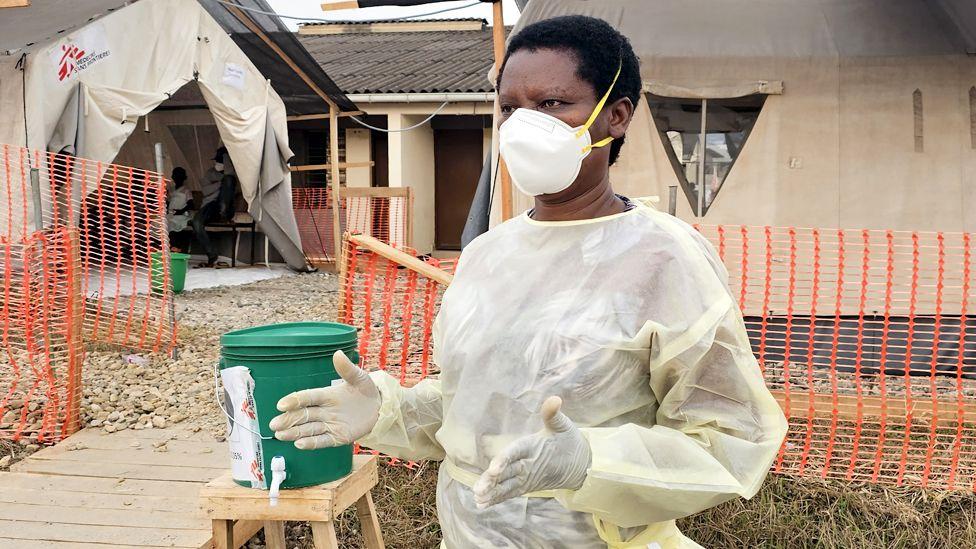
Odette Nsavyimana na di doctor in charge for di hospital and tok say di number of patients dey increase.
“We now dey set up tents outside.” Na three dey so far – one for triage, one to hold suspected cases and one to take confirmed cases bifor dey fit dey transferred to di wards.
“E dey tough, especially wen di babies come. Dey no fit stay alone, so I need keep dia mothers hia as well. Even if dey no get symptoms… na one kind tough situation,” Dr Nsavyimana tok, her voice wrap up by her protective face mask.
Burundi now dey see rise for mpox cases.
“I dey worry about di numbers. If dey keep increasing, no capacity for us to handle dat.”
Plenti effort dey for place to isolate those wey dey infected from di rest of di hospital population. Red tape dey everywhere, and visitors, wey need wear protective equipment, dey physically distanced from those infected.
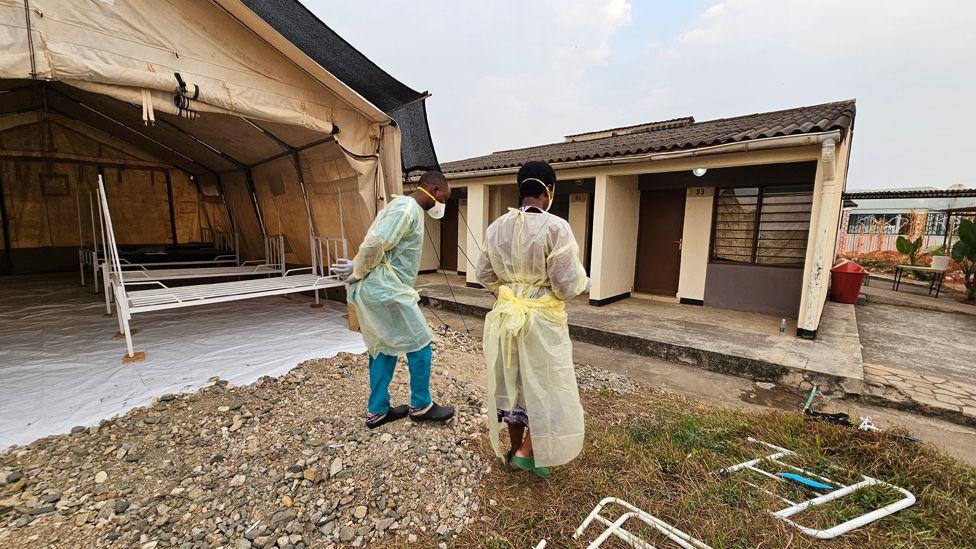
Medical officials now dey wory about limited resources. Na only one laboratory dey di kontri wia blood samples fit dey tested for di virus, no enough testing kits and no vaccines.
To maintain hygienic conditions across Bujumbura also dey hard as access to basic resources like water dey limited in di city. Shortage of running water dey and pipo fit dey see dey queue up for public taps.
Dr Liliane Nkengurutse, national director for di Centre for Public Health Emergency Operations, tok says she dey really concerned about di coming days.
“Dis na real challenge. Di fact say diagnosis only dey done for one place dey delay to detect new cases.
“Health centres dey call di laboratory say dey get suspected cases, but e dey take time for teams from di lab to deploy to wia di suspected cases dey to take samples.
“And e dey take much more time to release di test results. We need about $14m (£10.7m) to dey able to at least take our response to di next level,” she tok.
Despite tok-tok of vaccines to reach DR Congo as early as next week, no reports of any similar move for Burundi.
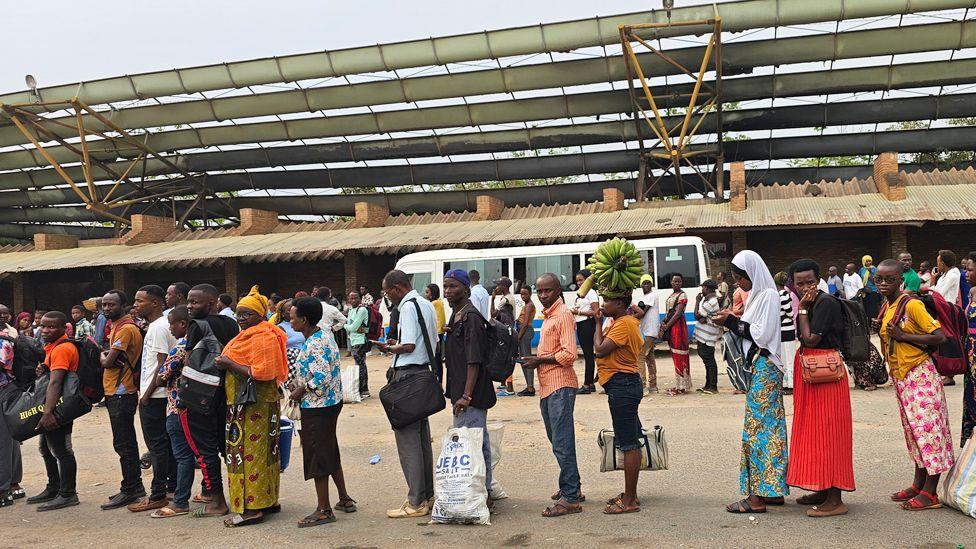
Public awareness about mpox dey limited.
Bujumbura na just 20 minutes from di border wit DR Congo and na hub for cross-border travel and trade. But no sense of di possible risks of any outbreak.
Di city dey full wit activity. Pipo still dey buy and sell goods as usual. Handshakes, hugs and very close contact na di norm. E get long queues for bus stations, wit pipo wey dey scramble to get onto already crammed public service vehicles.
“Many pipo no understand di gravity of dis issue. Even wia cases dey, pipo still just dey mingle,” Dr Nkengurutse tok.
Di BBC bin tok to plenti pipo for Bujumbura and di majority no know wetin mpox be. And those wey no dey aware say e dey spread for dia kontri.
“I don hear about dis disease, but I neva see pesin wey suffer from am. I don only see am on social media,” one pesin tok.
“I know say e dey affect babies and young pipo. I dey scared of am, but dat no mean say I go just stay fro house. I need to work. My family need to chop,” anoda tok.
Health workers know say to dey persuade pipo to take more care fit dey hard among one sceptical population wey dey face some economic challenges.
But dey go kontinu to treat patients, make sure dey get better and try and trace those wey dem dey in contact wit for efforts to contain di spread of di virus.

